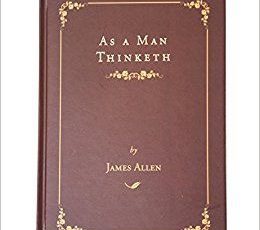
READING TIME: 3 MIN
While I normally post on Mondays, I will occasionally post a book review I find pertinent on Thursdays. This is the first such book review.
A couple weeks ago on a Tuesday, I looked forward to a free day. I had blocked off the whole morning for writing, and reached a good break-point at around 10:30 to get another cup of coffee.
When I came downstairs, Lisa was speaking on the phone with a worried expression. On most weekdays, Gabriella’s nurse accompanies her to her day program, and her nurse was telling Lisa that she had experienced a seizure.
This is not unusual. Gabriella has been suffering from seizure disorder since before her third birthday, and she has several every month. Only rarely do her seizures cause her oxygen level to become depressed and stay there. That’s what had happened that morning.
We jumped in the car and headed to program to pick her up, but before we got halfway there another call informed us they were taking her to the emergency room, so we went to the hospital instead. Luckily, she perked up as soon as they applied oxygen, and over the next five hours they progressed from a facial mask to a nasal cannula to blow-by oxygen, until her levels normalized and we could take her home.
And it had a silver lining. Waiting around the ER gave me time to read.
My colleague Brian had recently recommended As a Man Thinketh, by James Allen. He had found it helpful while mourning the loss of his father. He also mentioned that it was brief and moved quickly.
While I have read plenty of books on my iPad, this was my first e-book on my phone, but it worked fine because it’s so short.
Written in the early Twentieth Century, As a Man Thinketh is an optimistic essay, which appealed to my overall demeanor and was helpful in this situation. (Even when we know we’re progressing toward a speedy release, the emergency room is always stressful.) The crux of James Allen’s book is that you are what you think, that the more positive your thoughts the better the results you bring about. Likewise, Allen suggests that negative thinking gives rise to bad outcomes.
After introducing the overall concept, he organizes his thesis into several sections, focusing on the effect of thought on one’s circumstances and then on health and the body, thought and purpose, achievement, visions and ideals, and finally serenity. He offers many examples, and the book can feel somewhat repetitive. (He also writes in the manner of a century ago, referring to “a man” in most instances, even though his wisdom is gender-neutral.) But there is insight throughout, such as “Circumstance does not make the man; it reveals him to himself”.
My favorite sections of the essay are the final two.
The first of these is Visions and Ideals. He writes: “He who cherishes a beautiful vision, a lofty ideal in his heart, will one day realize it” and later “Your Vision is the promise of what you shall one day be; your Ideal is the prophecy of what you shall at last unveil”. In this way, he urges the reader to dream big dreams, for instilling those thoughts is taking a major step toward accomplishing them. This is wisdom applicable in every walk of life.
In his last section, titled Serenity, Allen compares a calm person to “a sheltering rock in a storm” and calls serenity “the last lesson of culture”. He describes “the exquisite poise which is characteristic of the finished character”. His closing words offer an entreaty to those facing obstacles. Brief and wise, As a Man Thinketh was a perfect read for an afternoon in the emergency room.







Leave a Comment